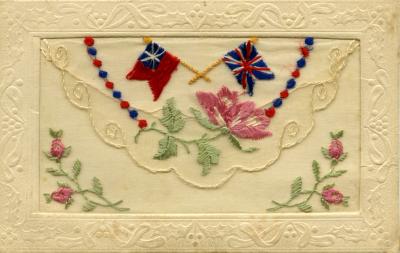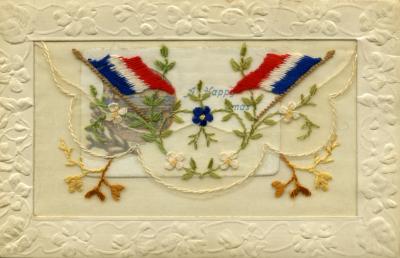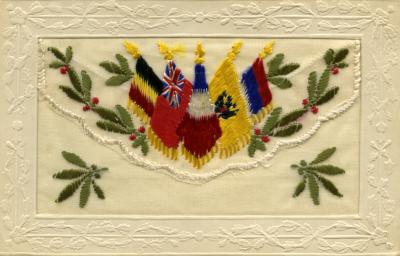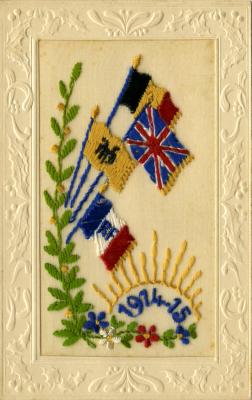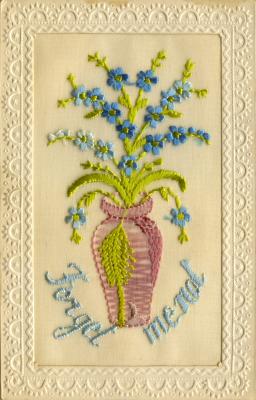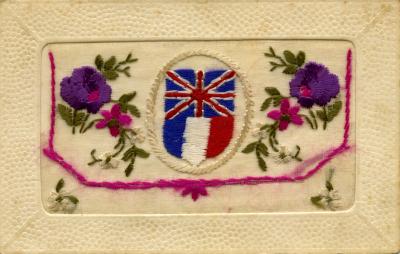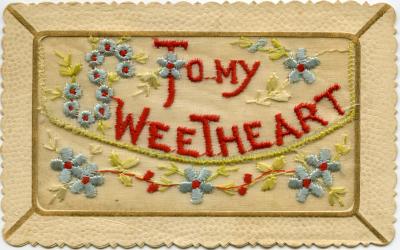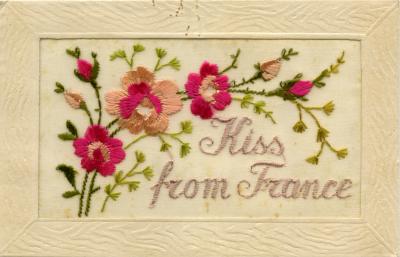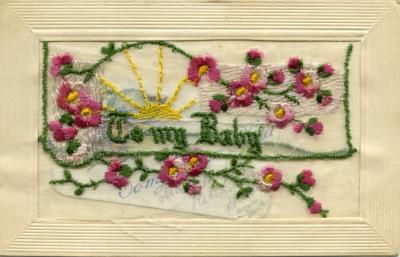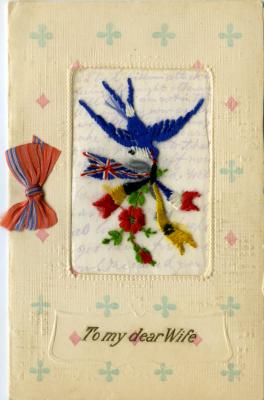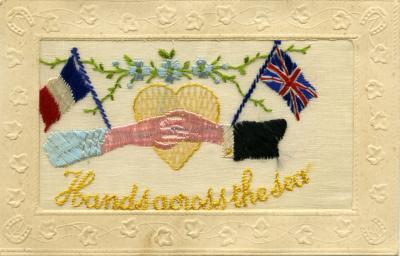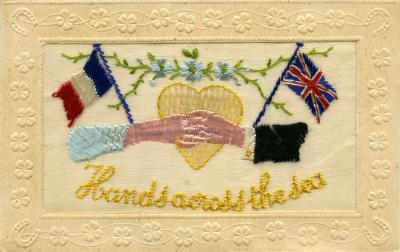WWI silk postcard with French shield and flags
c. 1915Embroidered silk postcard in the form of an envelope. The flap of the scalloped fabric envelope is bordered with white thread and has a central shield with a red and gold border representing the French flag, with the letters RF (République française) sewn on top in gold.
Two French flags extend outwards from the shield, with the outer red section having two triangles rather than a solid rectangular stripe. The flags are on blue flagpoles with gold finials.
A spray of leaves extends from the lower edges of the central shield, under the flags to the top. There is a yellow star or flower in the middle. The dates '1914' and '1915' are sewn in gold on the lower left and right of the silk insert.
Inside the lifted flap is a small cream coloured greeting card featuring on the left side the flags of the allies (France, Belgium, Imperial Russia and the United Kingdom) attached to a central post topped with a French battle axe.
The words 'Souvenir de Glorieuse Memoire' (Souvenir of glorious memory) is printed above and the dates '1914, 1915' below in blue. On the right hand side is another French phrase 'Gloire à la France éternelle' (Glory to eternal France). The reverse of the insert card is plain.
The surrounds are made from embossed cream card with a decorative pattern of flowers, berries and leaves.
The reverse of the postcard is plain other than a line separating the areas for writing and address and lines for the address to be written on. The words 'Paris Depose' are printed on the lower left.
According to the Australian War Memorial, woven silk postcards were first produced in Krefeld, Germany in 1898 as a combination of printed postcards and large woven silk pictures, known as Stevengraphs. The early cards were woven on machines. Being machine made, the woven cards always maintained a high standard.
Embroidered silk postcards were first made in 1900 for the Paris Exposition. The popularity of silk postcards peaked during World War One. A thriving cottage industry began around 1915 and the quality of the early silks was quite high. However later, to satisfy demand, the workmanship was often not quite as high.
Postcard companies began to employ women to produce silks on a rough assembly line basis. The cards were generally hand embroidered on strips of silk mesh with as many as 25 on a strip. They were mostly embroidered by French women in their homes and then sent to the factories for cutting and mounting on postcards.
Some postcards were made with little envelopes which could contain a smaller card with a sentimental message.
Production continued steadily through World War One, declining substantially in 1919, until ending around 1923. An estimated 10,000,000 hand made cards were produced from 1915 to 1919.
There are a large number of silk postcards in the collection, including several groupings relating to individual soldiers and their families. This card is an example of that, having been sent to one of two young daughters of a soldier who wrote regularly to his wife and both daughters.
Details
Details
On front of postcard:
"1914 1915"
On small card insert:
"SOUVENIR
DE
GLORIEUSE
MEMOIRE
1914
1915"
"Gloire
à la France
éternelle"
On reverse of postcard:
"PARIS DEPOSE"
Other items from Recollections of War
- WWI silk postcard with flags and flowers
- WWI silk postcard with French flags and flowers
- WWI silk postcard with allied flags sent by George
- WWI silk postcard sent from France by George
- WWI silk postcard 'Forget me not' sent by George
- WWI silk postcard with shield and flowers
- WWI silk postcard 'To My Sweetheart'
- WWI silk postcard sent to Annie from John 16 November 1916
- WWI silk postcard sent to Glayds from Daddy
- WWI silk greeting card sent to wife from Daddy July 4 1916
- WWI silk postcard sent to Glayds from Daddy June 28 1916
- WWI silk postcard sent to Ethell from Daddy June 28 1916
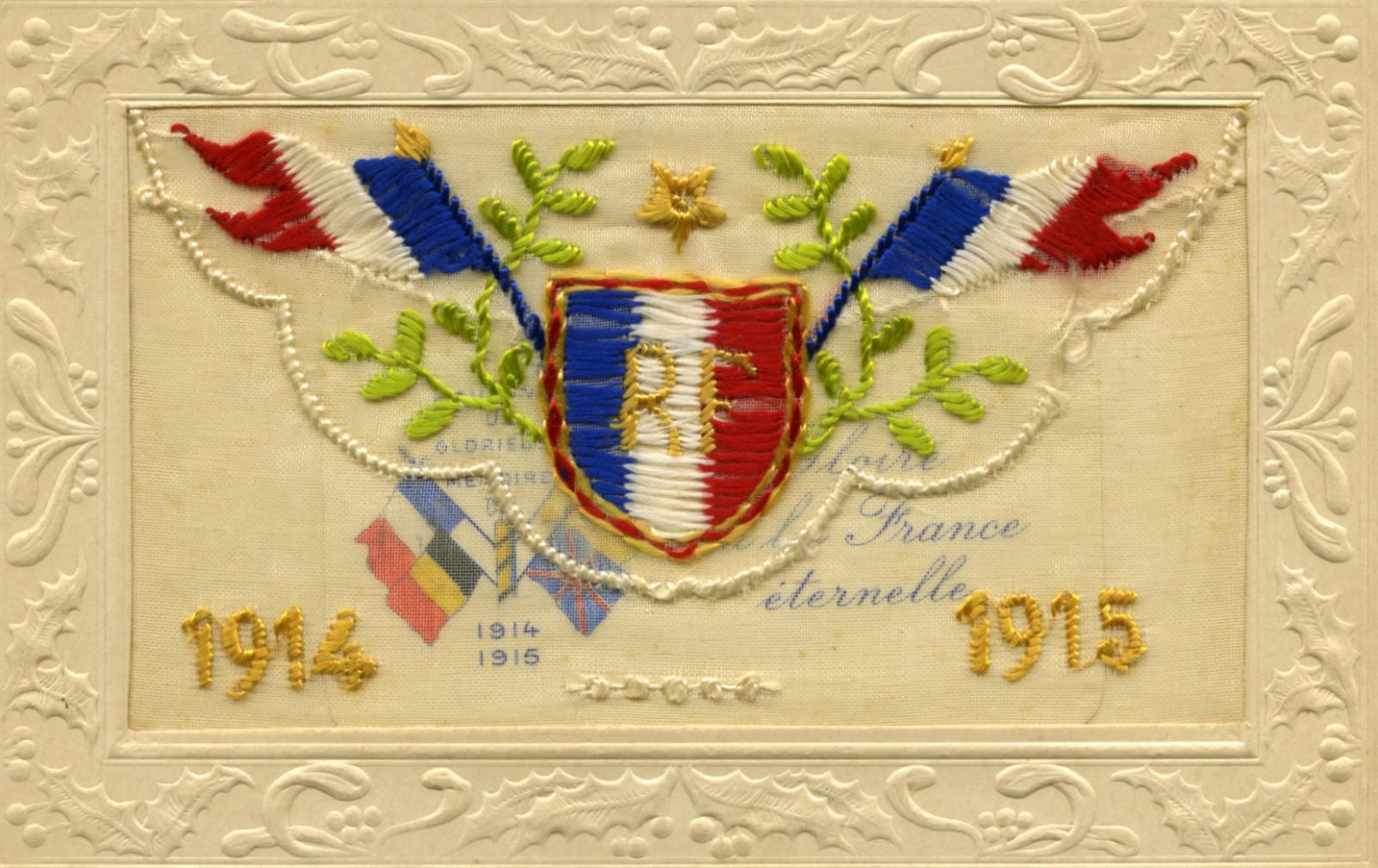
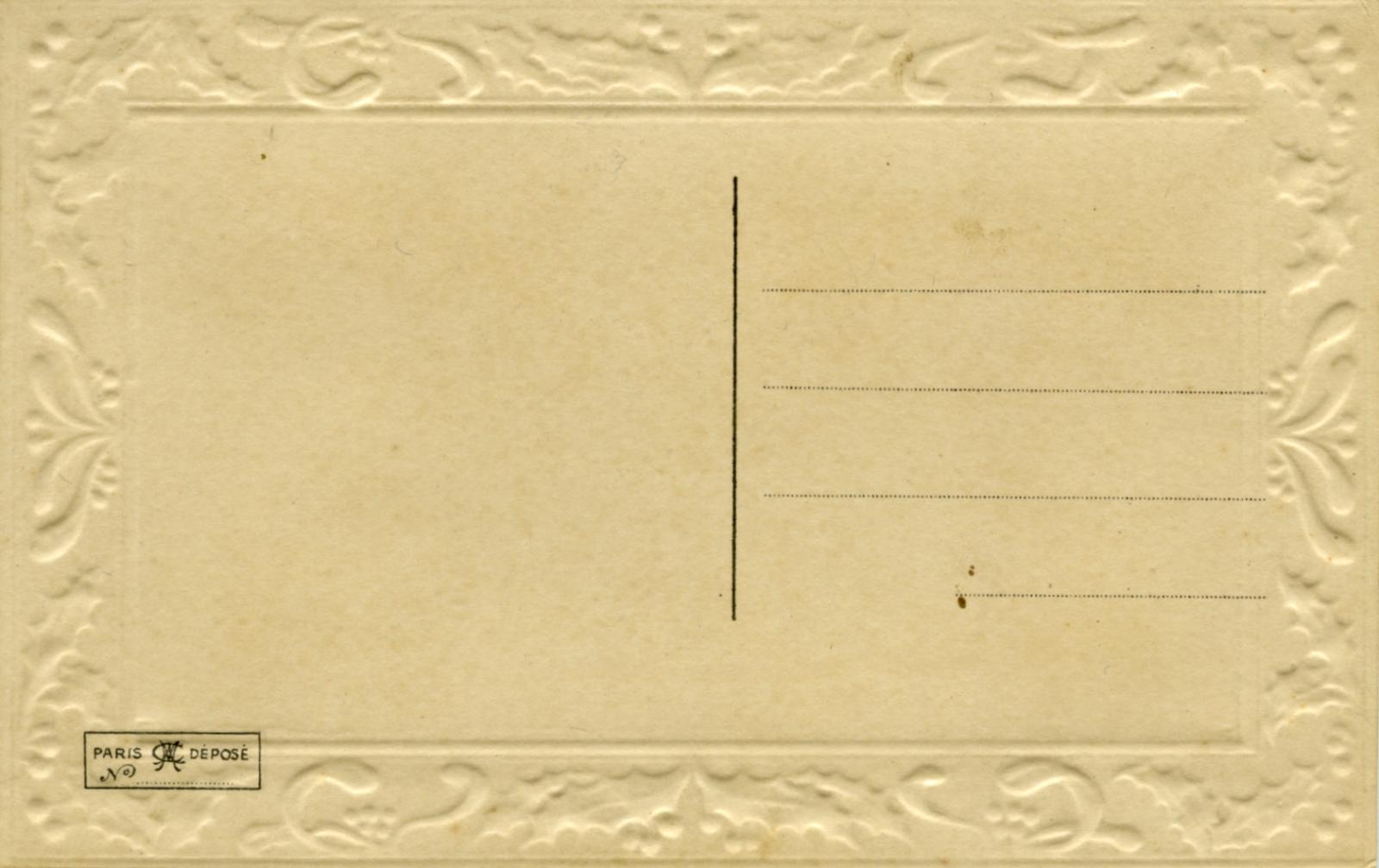
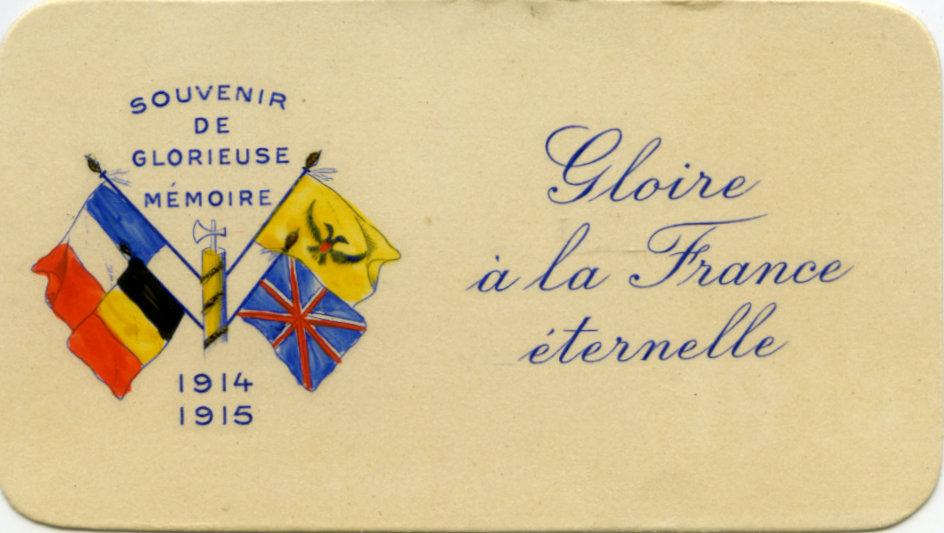
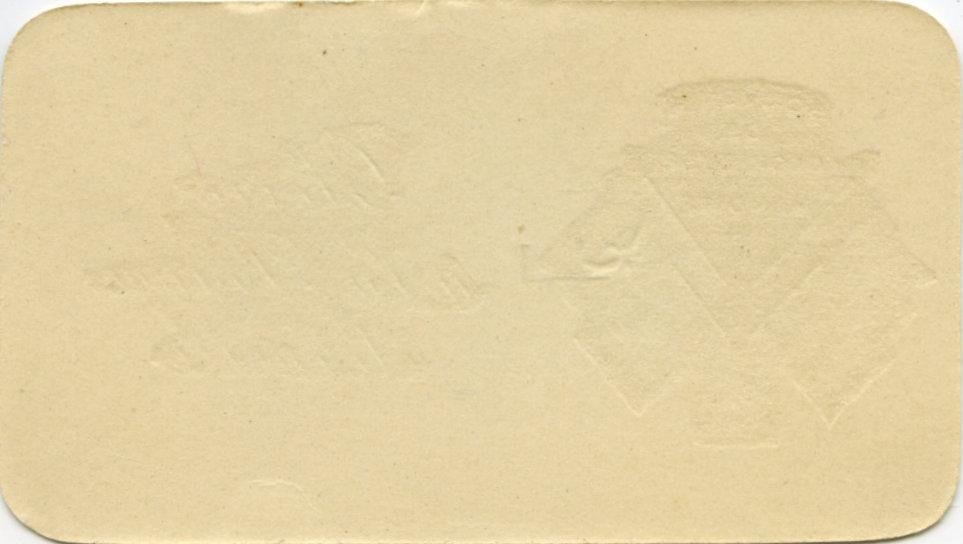
Scan this QR code to open this page on your phone ->

